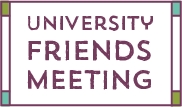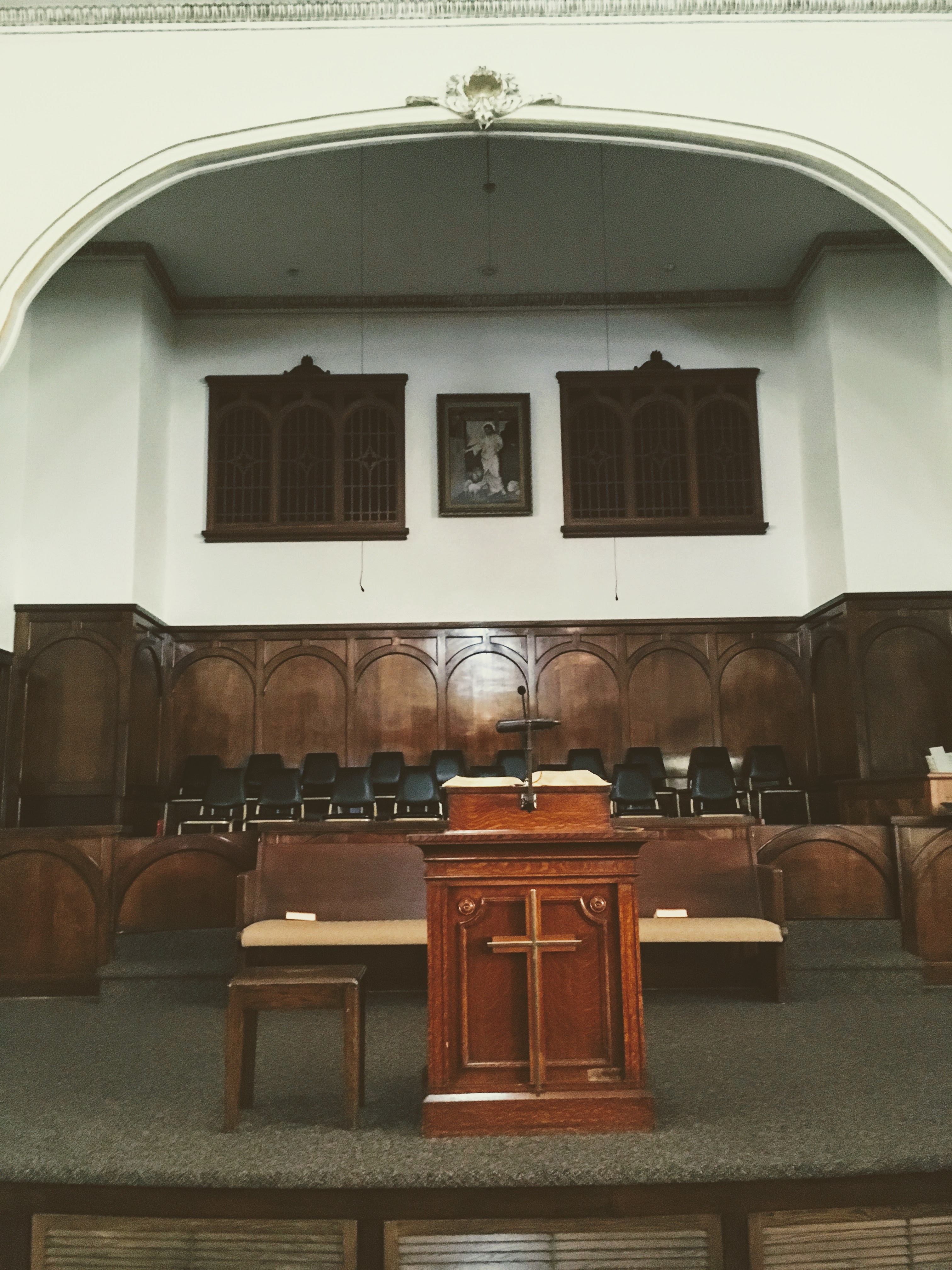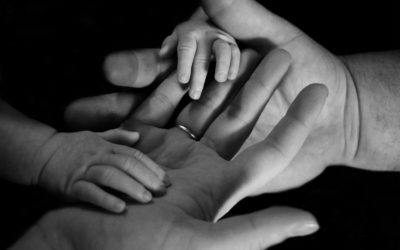May 17, 2020
Message: The Quaker Testimony of Equality
Scripture: 1 Corinthians 12
Music: Rhonda Newby
Flowers: Dorothy and John McKay
Announcements
- We are not gathering at the church for worship and live streaming on Facebook, through the month of June.
- During the live streaming, we do have room for a few people to come and serve as a kind of facing bench. If you would like to be among a handful of people who worship with us in person, be sure and let the office know. Call or email, and we’ll put your name in the hat.
- Also, please feel free to share our worship with your Facebook friends by posting a link on your page.
- This morning, as we did last week, we plan to offer a longer time for open worship, communion after the manner of Friends, after my message. During that time, you are welcome to contribute as you feel led, by making comments on the Facebook page.
- We are not having Monthly Meeting for business today. As we think about June’s meeting, give some attention to the proposal for a change in committee structure that went out over email a few days ago.
Prayer concerns
- Greg Newby has been diagnosed with a highly curable form of lymphoma of the bone in his shoulder, and plans are to begin chemotherapy in early June.
- People who are suffering loss
- We got word that the oldest member of the meeting, Peal Cole, died this week.
- Nellie Peters and her family
- The Bengi family
- Mary came home from the hospital on Wednesday
- Visitation hours at Culbertson-Smith are 1:00-8:00 today.
- A private graveside service will be tomorrow morning.
- Those who are suffering most in this pandemic: people who have lost jobs, people who have lost loved ones, people who lack food and housing and access to health care
- All of us, privileged or not, as we struggle, valiantly or not, to get through
- Our church during this time of transition
Please do mention other announcements or prayer concerns in the comments on Facebook.
Prayer
God our maker,
May we recognize you as the source of life and love. May we live in your light and power.
Message
You probably know, I am bringing a series of messages on the Quaker testimonies.
As I have said before, these testimonies are grounded in two basic ideas: that faith is something we need to live out, and that the reign of God is something that can be part of our world today.
The testimony of simplicity calls us to recognize that things can get in our way of following Jesus. It also calls us to recognize that the things we own can be channels of love or seeds of war.
The peace testimony calls us to seek alternatives to war. It also calls us to, in the words of James 3, “do the hard work of getting along with each other, [of] treating each other with dignity and honor” (James 3:18, The Message).
The testimony of integrity calls us to be honest in what we say and in our business lives, and it calls us to be honest with ourselves and to practice truth-telling in our relationships.
The testimony of community “calls us to exercise responsibility and accountability in our relationships with one another” (Cooper, Living Faith, pp. 157-158).
So, what does the testimony of equality call us to?
Here’s what Wilmer Cooper’s A Living Faith says. The testimony of equality means
… that we hold all persons to be potentially of equal worth before God and therefore all should be treated with love and concern regardless of race, gender, creed, or social standing (p. 158).
That’s the basic idea: love and concern should characterize all our relationships.
Here’s a bit more, also from A Living Faith:
From the beginning equality has been an important social testimony of Friends. In the seventeenth century they were ahead of their time in recognizing the rights and gifts of women in the affairs of the church, school, and home. They were not perfect in this respect, but they made a good start. Very early Friends also demonstrated concern for justice and equal rights for native Americans; for the care of the insane; for the treatment of prisoners; and for the needs of the poor. In the eighteenth century they were at least a generation ahead of others in the freeing of their slaves and were zealous abolitionists.
Quakers have always opposed the use of titles in addressing other persons, and part of their reason for the ‘plain language’ (in particular the use of ‘thee’ and ‘thou’) was that they not honor one person over another. Their refusal to doff their hats or bow before persons of honor, wealth, and authority represented their testimony to the equality of all persons before God. Everyone was believed to be precious in the sight of God because everyone was created in the I mage of God. In the twentieth century this same concept has been expressed in the phrase “that of God in everyone,” which … was Fox’s way of declaring the worth and dignity, as well as the divine capacity, present in all persons (pp. 109-110).
The idea that all people are created in the image of God comes from Genesis 1, a prose poem describing God’s work of creation in six days:
- Day 1: “Let there be light” (Gen. 1:3)
- Day 2: a separation between the water and the sky
- Day 3: a separation between the water and dry land
- Day 4: “Let there be lights in the dome of the sky” (1: 14)
- Day 5: sea creatures and birds
- Day 6: land creatures, including humans
Genesis 1: 26 Then God said, “Let us make humankind[c] in our image, according to our likeness….”
27 So God created humankind[e] in [God’s] image,
in the image of God [God] created them;[f]
male and female [God] created them. (NRSV)
Male and female, created in God’s image. There you go!
The idea that there is that of God in everyone comes from the founder of Quakerism, George Fox, an oft-quoted bit from a letter of 1656:
Friends,
In the power of life and wisdom, and dread of the Lord God of life, and heaven, and earth, dwell….
Keep in the wisdom of God that spreads over all the earth, the wisdom of the creation, that is pure. Live in it; that is the word of the Lord God to you all, do not abuse it…. ***
And this is the word of the Lord God to you all, and a charge to you all in the presence of the living God: be patterns, be examples in all countries, places, islands, nations, wherever you come, that your carriage and life may preach among all sorts of people, and to them; then you will come to walk cheerfully over the world, answering that of God in every one. (19:32, https://qfp.quaker.org.uk/chapter/19/)
Those ideas, that all people are made in the image of God and that there is that of God in everyone, meant that Quakers embraced the radical notion that God can and does call and gift women for ministry.
Margaret Fell, often called the mother of Quakerism, wrote a pamphlet affirming the ministry of women, “Womens Speaking Justified,” published in 1666. Because of this pamphlet, she takes her place among early feminists.
Here’s a bit from the pamphlet, a very long sentence:
… let this serve to stop that opposing Spirit that would limit the Power and Spirit of the Lord Jesus, whose Spirit is poured upon all flesh, both Sons and Daughters, now in his Resurrection; and since that the Lord God in the Creation, when he made man in his own Image, he made them male and female; and since that Christ Jesus, as the Apostle saith, was made of a Woman, and the power of the Highest overshadowed her, and the holy Ghost came upon her, and the holy thing that was born of her, was called the Son of God, and when he was upon the Earth, he manifested his love, and his will, and his mind, both to the Woman of Samaria, and Martha, and Mary her Sister, and several others, as hath been shewed; and after his Resurrection also manifested himself unto them first of all, even before he ascended unto his Father. Now when Jesus was risen, the first day of the week, he appeared first unto Mary Magdalene, Mark 16. 9. And thus the Lord Jesus hath manifested himself and his Power, without respect of Persons, and so let all mouths be stopt that would limit him, whose Power and Spirit is infinite, that is pouring it upon all flesh. (https://digital.library.upenn.edu/women/fell/speaking/speaking.html)
Robert Barclay’s Apology, written in the 1670s, gave a rational defense of the ideas that George Fox spoke about. I find what he said on women in ministry to be valuable.
Since male and female are one in Christ Jesus [Galatians 3:28], and [God] gives [God’s] Spirit no less to one than to the other, we do not consider it in any way unlawful for a woman to preach in the assemblies of God’s people when God so moves her by [God’s] Spirit. Nor do we consider Paul’s reproof of the inconsiderate and talkative women who caused trouble in the church at Corinth with their inappropriate Questions, 1 Cor 14:34, to be in any way contrary to this doctrine. The same applies to 1 Tim 2:11-12…. It is clear that women prophesied and preached in the early Church, or else it would not have been appropriate for Peter to quote Joel (Acts 2:17) to the effect that “your sons and daughters shall prophesy.”
In fact, in the same epistle to the Corinthians already referred to, Paul gives rules on how women should conduct themselves when preaching or praying publicly. … Paul also speaks of a woman who labored with him in the work of the gospel [Romans 16:1-2]. ***
Finally, it has been observed how God in this day has effected the conversions of many souls through the ministry of women. [God] has also used them frequently to comfort the souls of [God’s] children. Certainly this demonstration of actual practice should place the question beyond controversy (pp. 218-219)
Note that Barclay uses two sources of authority here: a careful reading of scripture, and experience: We see God working through women.
The ideal of equality, which Quakers have held for centuries, it something to be cherished and practiced. Yes.
And, we have to acknowledge that we haven’t always done a good job of living it out.
Quaker women who were zealous abolitionists and suffragists, working for the rights of enslaved people and for the rights of women, still disallowed women of African descent from playing an equal roll in the Women’s Rights movement (Founding Sisters, Clift).
We like to bask in the glory of those Quakers who worked on the underground railroad to help enslaved people escape to freedom, even though we might have been among those Friends who thought breaking the law in that way was wrong. At least one yearly meeting split over this question.
We like to remember that, after the Civil War, Quakers were among the first to start schools for emancipated African Americans, even though we might have been among those to deny those African Americans membership in our churches and yearly meetings. A book called Fit for Freedom, Not for Friendship: Quakers, African Americans, and the Myth of Racial Justice calls attention to some of these things.
We like to think of ourselves as untainted by racism and prejudice, and University Friends does have people of color as part of the congregation, but have you ever noticed that the people of color who worship here all sit in the back rows? What’s up with that?
We like to brag about our early affirmation of women in ministry, but what does it say about us if we haven’t had a female head pastor in more than 100 years?
For a while now, Friends Journal (a monthly Quaker magazine) has been putting out a video series called QuakerSpeak. Just this week, they published a new video called, “Quakers Confronting White Privilege” (https://www.youtube.com/watch?v=QdryofASgjM).
Patty Savely shared a link to it with the book club that meets on Tuesdays. That group is reading a book about the roll of Christianity in justifying policies of oppression of native peoples in the United States and Canada. This past Tuesday, the group talked about how we white Christians still benefit from those policies, so the QuakerSpeak video on white privilege was timely.
And, hey, we’re talking about the testimony of equality, so…. 😊
The video opens with a white Pennsylvania Quaker guy saying, “As a Quaker in the early twenty-first century, I am a acutely aware that I have inherited and an active participant in a tradition that has benefited from centuries of exploitation and domination.”
Here are some of the points that this video makes:
- As a denomination, we are overwhelmingly white.
- We may not consciously hold to the idea that white people are superior, but in our meetings for business, decisions are made by white people, and the ideas of people of color do not get treated with the same attention as the ideas of white people.
- Some of us have benefited from white supremacist, heterosexist patriarchy.
- We need to call that out and name it now.
- We need to learn about systemic racism and how we might be participating, supporting, and benefiting from it.
- If we hold that all people are made in the image of God, the testimony of integrity calls us to treat all people with respect.
- How can I, how can we, live in ways that honor the contributions of all people?
In this context, the concept of intersectionality can help us see and understand some of the dynamics of inequality.
According to my online dictionary, intersectionality is “the interconnected nature of social categorizations such as race, class, and gender as they apply to a given individual or group, regarded as creating overlapping and interdependent systems of discrimination or disadvantage” (https://www.google.com/search?q=intersectionality&oq=interse&aqs=chrome.1.69i57j0l7.6688j0j9&sourceid=chrome&ie=UTF-8).
“Through an awareness of intersectionality,” the dictionary suggests, “we can better acknowledge and ground the differences among us.”
It works like this. As far as race goes, I benefit from being white. As far as class goes, I benefit from being educated while I have also been shaped by being the daughter of a truck mechanic. (Conversations around the dinner table when I was growing up were more likely to be about pistons and spark plugs than about investing in the stock market.) I benefit from identifying as heterosexual. I benefit from being cisgendered, that is my sense of personal identity as a woman matches my female body. I have also lived with the reality that parts of who I am, as being smart and a leader, have been discounted because I am female.
I did not choose whiteness, but I have benefited from it. I didn’t choose femaleness, but I have sometimes been hindered by it. We all are mixed in terms of how we experience discrimination and advantage.
In the life of a congregation, all deserve equal honor and respect. We are not all the same, but we all have valuable contributions to make.
1 Corinthians 12, beginning with verse 4, from The Message:
4-11 God’s various gifts are handed out everywhere; but they all originate in God’s Spirit. God’s various ministries are carried out everywhere; but they all originate in God’s Spirit. God’s various expressions of power are in action everywhere; but God … is behind it all. Each person is given something to do that shows who God is: Everyone gets in on it, everyone benefits. All kinds of things are handed out by the Spirit, and to all kinds of people! The variety is wonderful….
All these gifts have a common origin, but are handed out one by one by the one Spirit of God. He decides who gets what, and when.
12-13 You can easily enough see how this kind of thing works by looking no further than your own body. Your body has many parts—limbs, organs, cells—but no matter how many parts you can name, you’re still one body.
What we have is one body with many parts, each its proper size and in its proper place. No part is important on its own. Can you imagine Eye telling Hand, “Get lost; I don’t need you”? Or, Head telling Foot, “You’re fired; your job has been phased out”? As a matter of fact, in practice it works the other way—the “lower” the part, the more basic, and therefore necessary. You can live without an eye, for instance, but not without a stomach. When it’s a part of your own body you are concerned with, it makes no difference whether the part is visible or clothed, higher or lower. You give it dignity and honor just as it is, without comparisons. If anything, you have more concern for the lower parts than the higher. If you had to choose, wouldn’t you prefer good digestion to full-bodied hair?
25-26 The way God designed our bodies is a model for understanding our lives together as a church: every part dependent on every other part, the parts we mention and the parts we don’t, the parts we see and the parts we don’t. If one part hurts, every other part is involved in the hurt, and in the healing. If one part flourishes, every other part enters into the exuberance.
In the ways of God’s Spirit, gifts are given as God choses. Not all leadership gifts are given to educated white men. Not all service gifts are given to women.
If we don’t discern the fitness of a person for ministry (or friendship or membership) on their financial status or the color of their skin or their sex, what criteria should we use?
How can we tell if a person is fit for ministry? We see evidence. Their ministry bears good fruit. As Barclay said, lives are changed, and hearts are blessed. When we see lives changed and hearts blessed, we know God has gifted that person for that ministry.
Their lives bear good fruit: love, joy, peace, patience, kindness, generosity, faithfulness, 23 gentleness, and self-control (Galatians 5:22-23, NRSV). When we see these things in a person’s life, there is that of God.
The testimony of equality calls us to treat each person we encounter with love and concern regardless of race, gender, creed, or social standing. May we live out that testimony with integrity.
We are meeting in person and also streaming our sermons on Facebook at 10:00 AM CST. Watch live:
https://www.facebook.com/universityfriendschurch/
Not on Facebook? You can see all of our posts and videos on our site here!



